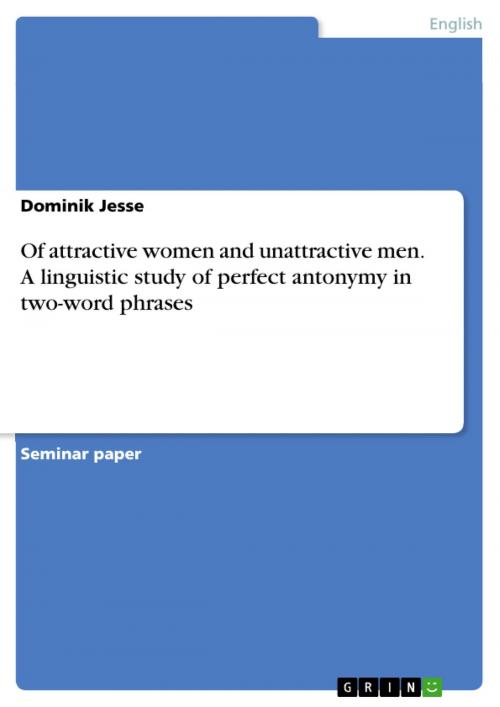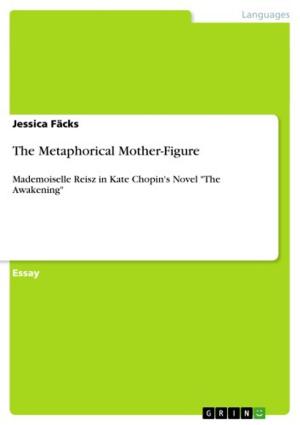Of attractive women and unattractive men. A linguistic study of perfect antonymy in two-word phrases
Nonfiction, Entertainment, Drama, Anthologies| Author: | Dominik Jesse | ISBN: | 9783656925385 |
| Publisher: | GRIN Verlag | Publication: | March 23, 2015 |
| Imprint: | GRIN Verlag | Language: | English |
| Author: | Dominik Jesse |
| ISBN: | 9783656925385 |
| Publisher: | GRIN Verlag |
| Publication: | March 23, 2015 |
| Imprint: | GRIN Verlag |
| Language: | English |
Seminar paper from the year 2014 in the subject English Language and Literature Studies - Linguistics, grade: 1,0, Free University of Berlin (Englische Philologie), course: Sementics, language: English, abstract: In the English (and any other) language, antonymy belongs to the most interesting aspects which linguists may come across. Human beings think and speak in categories. Thus, they classify every word into groups by referring to one or several (suppositionally) equal characteristics of these words. In this respect, antonymy is simply a particular manner of categorization, but a rather keen one for its being based on the strong (albeit rarely logical ) differentiation from other words. Consequently, an antonym cannot occur on its own terms; it always needs another word to which it refers. Much has been written about antonymy (Lyons 1977, Cruse 1992, Cruse 1995, Murphy 2006 et. al.). Yet, as far as is known, no scientific study has ever been conducted of a phenomenon that is to be called perfect antonymy and is related to the antonymy of entire phrases. This concept means that all single parts of a group of, at least, two words are turned into the opposite, as can bee seen in [1iiid] of the example [Example 1].
Seminar paper from the year 2014 in the subject English Language and Literature Studies - Linguistics, grade: 1,0, Free University of Berlin (Englische Philologie), course: Sementics, language: English, abstract: In the English (and any other) language, antonymy belongs to the most interesting aspects which linguists may come across. Human beings think and speak in categories. Thus, they classify every word into groups by referring to one or several (suppositionally) equal characteristics of these words. In this respect, antonymy is simply a particular manner of categorization, but a rather keen one for its being based on the strong (albeit rarely logical ) differentiation from other words. Consequently, an antonym cannot occur on its own terms; it always needs another word to which it refers. Much has been written about antonymy (Lyons 1977, Cruse 1992, Cruse 1995, Murphy 2006 et. al.). Yet, as far as is known, no scientific study has ever been conducted of a phenomenon that is to be called perfect antonymy and is related to the antonymy of entire phrases. This concept means that all single parts of a group of, at least, two words are turned into the opposite, as can bee seen in [1iiid] of the example [Example 1].















